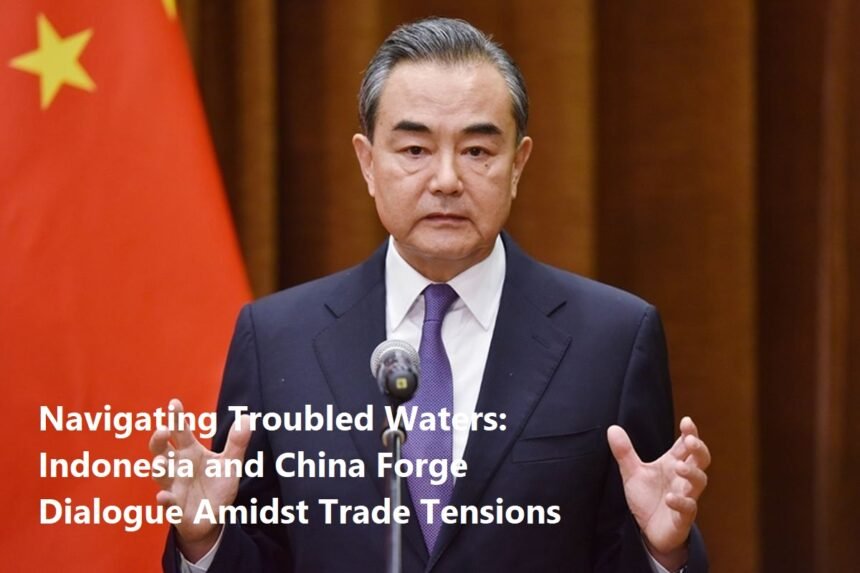On Monday, April 21st, 2025, Indonesian Foreign Minister Sugiono met with his Chinese counterpart, Wang Yi, in Beijing, a meeting that carries significant weight against the backdrop of Beijing’s veiled threats directed towards nations engaged in negotiations for increased US import tariffs. This high-level dialogue underscores the complex diplomatic dance Indonesia must perform as it navigates the turbulent waters of global trade disputes and seeks to maintain a balanced relationship with two powerful economic players.
The context of the meeting is crucial. The proposed increase in US import tariffs has sent ripples of uncertainty through the global economy, impacting supply chains and potentially triggering retaliatory measures from affected nations. Beijing’s implicit warning, interpreted as a caution against supporting or aligning with the US position, adds another layer of complexity to an already delicate situation. In this environment, Indonesia’s engagement with China becomes particularly significant, highlighting the country’s commitment to dialogue and its pursuit of an independent foreign policy.
Minister Sugiono’s presence in Beijing suggests a desire to directly address these concerns and understand China’s perspective on the proposed tariff increases. Indonesia, as a major Southeast Asian economy, is deeply intertwined with the global trading system and would undoubtedly be impacted by a protracted trade war. Therefore, the meeting likely served as a platform for Indonesia to express its concerns regarding the potential destabilizing effects of such measures on regional stability and economic growth.
Furthermore, the meeting provided an opportunity for both nations to reinforce their commitment to bilateral cooperation. Indonesia and China share a multifaceted relationship that spans trade, investment, infrastructure development, and security cooperation. Discussions likely touched upon strengthening these existing partnerships and exploring new avenues for collaboration, particularly in sectors such as renewable energy and digital economy. By focusing on areas of mutual benefit, both nations can solidify their ties and navigate the broader geopolitical challenges together.
However, Indonesia’s engagement with China must also be viewed through the lens of its own strategic interests. While seeking to maintain a positive relationship with Beijing, Indonesia must also prioritize its sovereignty and adhere to its independent foreign policy principles. This includes ensuring that any agreements or collaborations with China align with Indonesia’s national development goals and contribute to regional stability and security.
The meeting between Ministers Sugiono and Wang Yi is a timely reminder of the growing complexity of global diplomacy. As major economies engage in trade disputes and exert economic pressure, nations like Indonesia must actively participate in shaping the international landscape. By fostering open communication, promoting multilateral dialogue, and prioritizing their own national interests, countries can mitigate the negative consequences of these disputes and contribute to a more stable and prosperous future. The success of Minister Sugiono’s mission will ultimately be measured by Indonesia’s ability to navigate these challenging circumstances while safeguarding its own economic and strategic objectives in the face of increasing global uncertainty. The meeting in Beijing is a critical step in that direction.











